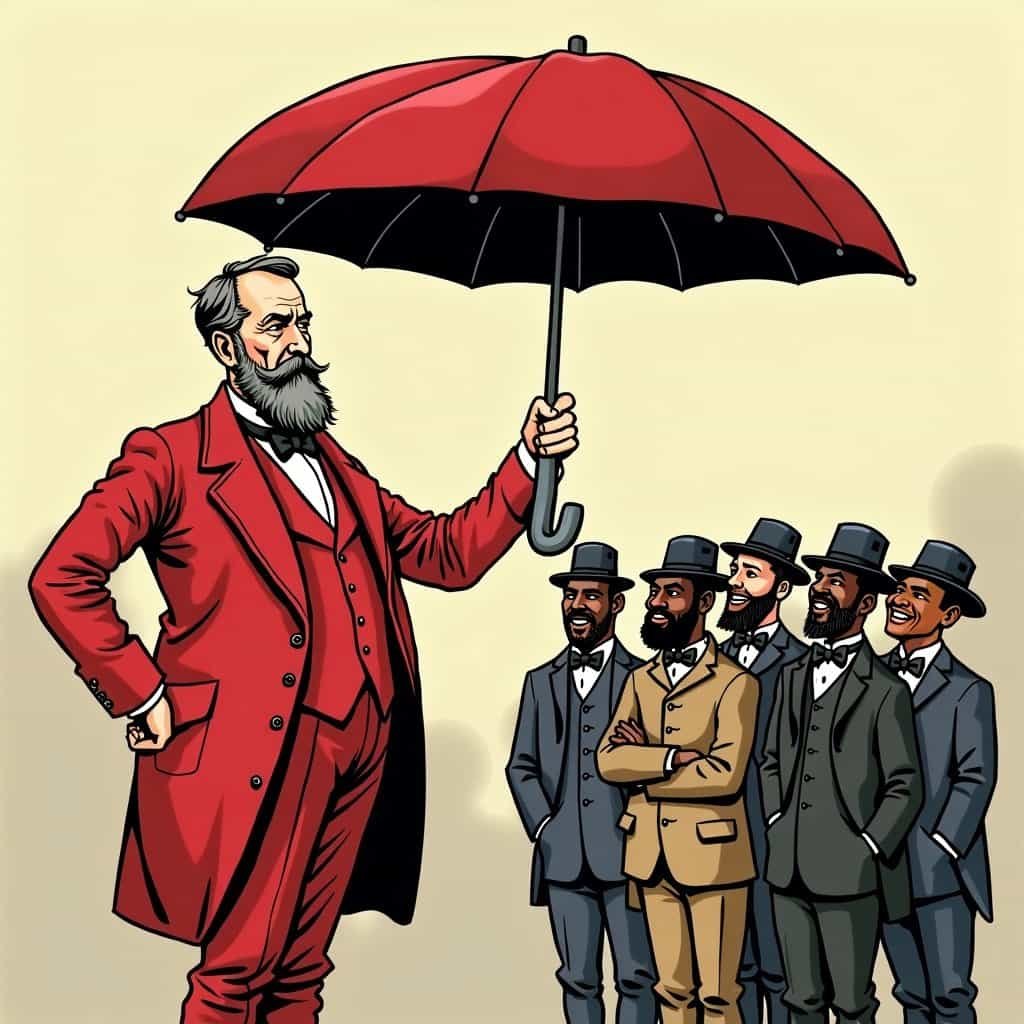Ulysses S. Grant’s leadership often sparks heated debates among historians. But let’s face it: the man earned his stripes. Grant wasn’t one for flowery speeches or trying to please everyone with wishy-washy rhetoric; he knew that actions speak louder than words. This guy fought for freedom on the front lines while bringing some much-needed straight talk to a nation piecing itself back together after the Civil War.
Once the bullets stopped flying, Grant took on what might be his most significant challenge – safeguarding the rights of freed slaves. That’s right, folks. While today’s liberals love to crow about their supposed monopoly on “doing the right thing,” Grant stood tall for the freedoms of these men and women when it would’ve been politically easier to look the other way.
To grasp just how game-changing Grant’s moves were, remember that he didn’t rely on fancy talk or sweeping federal changes that everyone had to swallow. That’s the kind of leadership progressives drool over. Instead, Grant walked a tightrope: federal backup when needed, sure, but also a laser focus on not squashing local initiative. Unlike those who think big government is the answer to everything, Grant struck a balance between respecting limited governance and stepping in when freedom was at risk.
The Enforcement Acts: Grant’s Ace in the Hole
Consider the Enforcement Acts he championed. These legislative gems cut through the lawlessness targeting African Americans in the South like nobody’s business. The Klan and their buddies? Suddenly, their nasty tricks were put on notice. Grant’s team (yes, his) flexed federal muscle carefully, allowing for military intervention in certain cases. This wasn’t some out-of-control Big Brother operation but a focused defense of constitutional rights – the heart of conservative principles.
Grant’s Balancing Act
| Federal Action | Local Autonomy |
|---|---|
| Enforcement Acts | State-level implementation |
| Military intervention | Limited to specific scenarios |
| Protection of freedmen’s rights | Preservation of local governance |
Grant faced no shortage of naysayers. From hotheads demanding immediate federal takeover to ex-Confederates whining about states’ rights, the late 1800s were a mess of competing interests. Grant knew that no one-size-fits-all approach could tackle such a thorny issue. Juggling federal protection with the push for local self-rule? That’s called walking a tightrope, my friends. Liberals today might pooh-pooh such subtlety, calling it weak or outdated. But protecting freedmen’s right to vote, own property, and be part of this Republic without tearing apart the whole social fabric? That’s Republican common sense at its finest.
A Stark Contrast to Modern Politics
Fast forward to today, and people would do well not to mix up Grant’s actions with the kind of “fixes” modern progressives try to shove down our throats. Let’s draw a comparison – liberals these days love big government meddling, creating so much red tape that your average Joe can’t imagine getting by without Uncle Sam holding their hand. Grant’s example shows us that sometimes the feds need to step in. But the big takeaway is this: it works best when it zeroes in on specific problems while leaving the bigger picture intact, so local folks can take charge.
As we look back on Grant’s role, let’s not twist his methods. You don’t need to turn everything upside down to make progress. Grant’s dedication to law and order, justice, and measured governance is what makes him stand out. Whether he was cracking down on injustice or refusing to bulldoze traditional ways of governing, he threaded the needle in keeping both moral and social order. So liberals – pay attention, if you can! Less government meddling means more faith in society’s ability to adapt on its own.
The Grant Legacy: A Blueprint for Conservative Action
To wrap it up, Ulysses S. Grant showed us what conservative action looks like when it steps up for justice while holding onto broader ideas of freedom: straight-up practicality with a dash of restraint. Next time someone tries to tell you that history without top-down federal fixes can’t help civil rights, remind them about Grant. He might not have been big on long-winded speeches, but his presidency spoke volumes in defending liberty, striking a balance between America’s federal power and its cherished independence. Now that’s something future leaders could learn from – if the progressive noise doesn’t drown it out first!
Table of Contents
- The Enforcement Acts: Grant’s Ace in the Hole
- A Stark Contrast to Modern Politics
- The Grant Legacy: A Blueprint for Conservative Action






